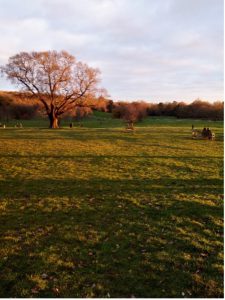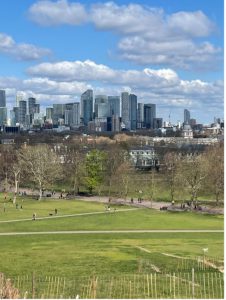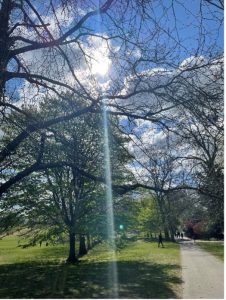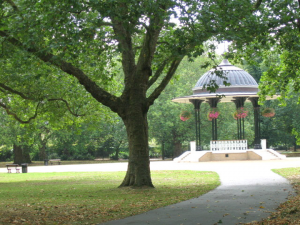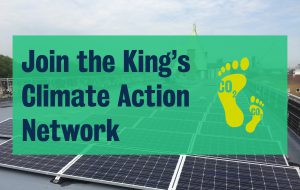What is King’s doing to strengthen sustainable education? Find out about three key projects we are working on at the moment below.
KEATS Sustainability Module
King’s Sustainability has launched an online, open-access, interdisciplinary KEATS sustainability module, aiming to offer everyone, no matter their field, a broad understanding of sustainability. The module is being put together by a team of incredible students, staff and King’s alumni. This year will still be a pilot, but with the involvement and support of this year’s enrolled students, we hope to officially launch it as a finalised module in the new academic year. This pilot year, we have been releasing a new content section every two weeks.
So far, content on “what is sustainability”, the climate crisis, and sustainable food are live. There is also a section with tips on how to take action and an overview of our favourite sustainability resources. The contents include engaging short videos, text, and padlets to encourage discussions. There is also a short quiz at the end of each section to test participants’ knowledge, and evaluation forms to continue to shape the module according to people’s feedback.
Boost your knowledge of sustainability and help shape sustainable education at King’s by enrolling via this link. By signing up, you will test the sustainability module and shape it with your feedback and ideas.
Sustainability Seminar Series
Alongside this module, we have been hosting a Sustainability Seminar Series which is running throughout the academic year covering some of the biggest topics in sustainability. It offers the entire King’s community an opportunity to learn more about climate science, justice, sustainable agriculture and much more from seminal speakers in the field. Through these monthly 90-minute sessions, participants get the opportunity to fully engage with the subject in the breakout room discussions and Q&As with the speaker. The series aims to be interactive, empowering and motivate everyone to take action!
The first seminar featured climate expert Dr George Adamson on Bringing Climate Change Home. He discussed how we can address climate change at the scale of the everyday by understanding climate change as an interaction between place, personal history, daily life, culture and values. You can watch the lecture here. The second seminar focused on climate, perception framing, and culture. We were joined by Dr Joachim Aufderheide from the Philosophy Department who helped us think critically about the concept of sustainability, understand how different disciplines tend towards different conceptions of sustainability, and consider moral issues around sustainability. You can watch the recording here.
The next seminar on the 25th of January 2.00-3.30 PM will focus on “Rethinking the Economy for a Sustainable Future”. We will host a very special panel with experts Enrich Sahan (Business & Enterprise Lead at the Doughnut Economics Action Lab), Julia Steinberger (Professor of Ecological Economics at the University of Lausanne), and Vincent Liegey (spokesperson for the French degrowth movement). Save the date to make sure you do not miss out on this special session.
SDG Curriculum Mapping
We are also very excited to have embarked on a new journey: mapping out all modules at King’s alongside the United Nations Sustainable Development Goals (UN SDGs). All students and staff can sign up as volunteers to support this project. It is a great opportunity to find out where environmental and social sustainability currently sits within the curriculum at King’s while building key skills such as auditing, research, and analysing data.
The first training session led by SOS-UK took place on 13th December, where participants were trained to do a guided audit across programmes and modules and equip them with the knowledge and skills needed to do the mapping. The full volunteer description is available here.


 .
. 